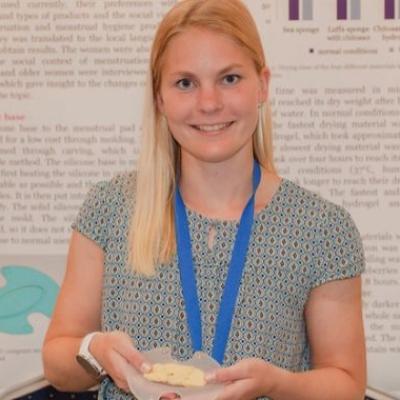
Ronja Holopainen, a young student from Finland who won the 2019 EU Contest for Young Scientists (EUCYS) prize in bioeconomy, was presenting her research project to key CBE JU partners this week.
The contest’s international jury selected Ronja’s project EcoMe: a reusable, ecological and affordable menstrual hygiene product for developing regions for excellence in the field of bio-based research leading to a more sustainable future.
Since 2016, CBE JU has supported the contest by sponsoring the bioeconomy prize. The winning project must reflect key principles of the bio-based economy in using raw materials of biological origin in a sustainable, renewable, and innovative way, whilst at the same time promoting scientific research and raising environmental awareness.
Supporting women’s healthcare and ecology across the globe
EcoMe is a reusable, ecological and affordable menstrual pad aimed at developing regions. Ronja’s path to the final product has been an interdisciplinary one. In the first place, Ronja conducted a survey in three Asian countries (Mongolia, Azerbaijan and China) on the approach towards menstruation of the local girls and women. These results were used to establish the limitations and preferences of women in developing countries, which Ronja used to design the bioproduct.
An average woman uses over 11,000 disposable menstrual hygiene products during her lifetime. On the contrary, the bio-based menstrual pad created by Ronja is completely reusable. It is made of silicone and sea sponge, the bio-based component, and it’s affordable for women in developing countries. The sea sponge was deliberately selected because of its properties of absorbance, drying time, and cleansing. In this way, this Finnish student wants to create a global impact on both ecology and women’s healthcare.
In addition, Ronja has developed EdMe, a smartphone app with scientific knowledge about puberty, menstruation, contraception and other aspects of sexual health and rights.
This week gave me a lot of insight into working with different stakeholders in the EU, both public and private. Additionally, meeting empowering women in the STEM field has encouraged me to continue my professional path on this sector.
Ronja Holopainen
Exchanging with key CBE JU partners in Brussels
CBE JU had to postpone the award visit to Brussels several times due to the pandemic. Since 2019, Ronja has started medicine studies at Maastricht University (the Netherlands), while finalising her studies in International Business at Aalto University (Finland) as well as having started a PhD in bone diseases at the University of Helsinki (Finland) yet managed to squeeze a week-long tour of the EU institutions and projects into her busy agenda.
The young scientist started the visit on the International Day of the Girl in the CBE JU’s Programme Office where she presented her research project to the team and learned more about the organisation’s work advancing competitive circular bio-based industries in Europe. On the same day, she met Sophia De Smet and Marco Rupp, representatives of the Bio-based Industries Consortium (BIC), a founding partner of CBE JU, for an exchange on the business development perspective of her project.
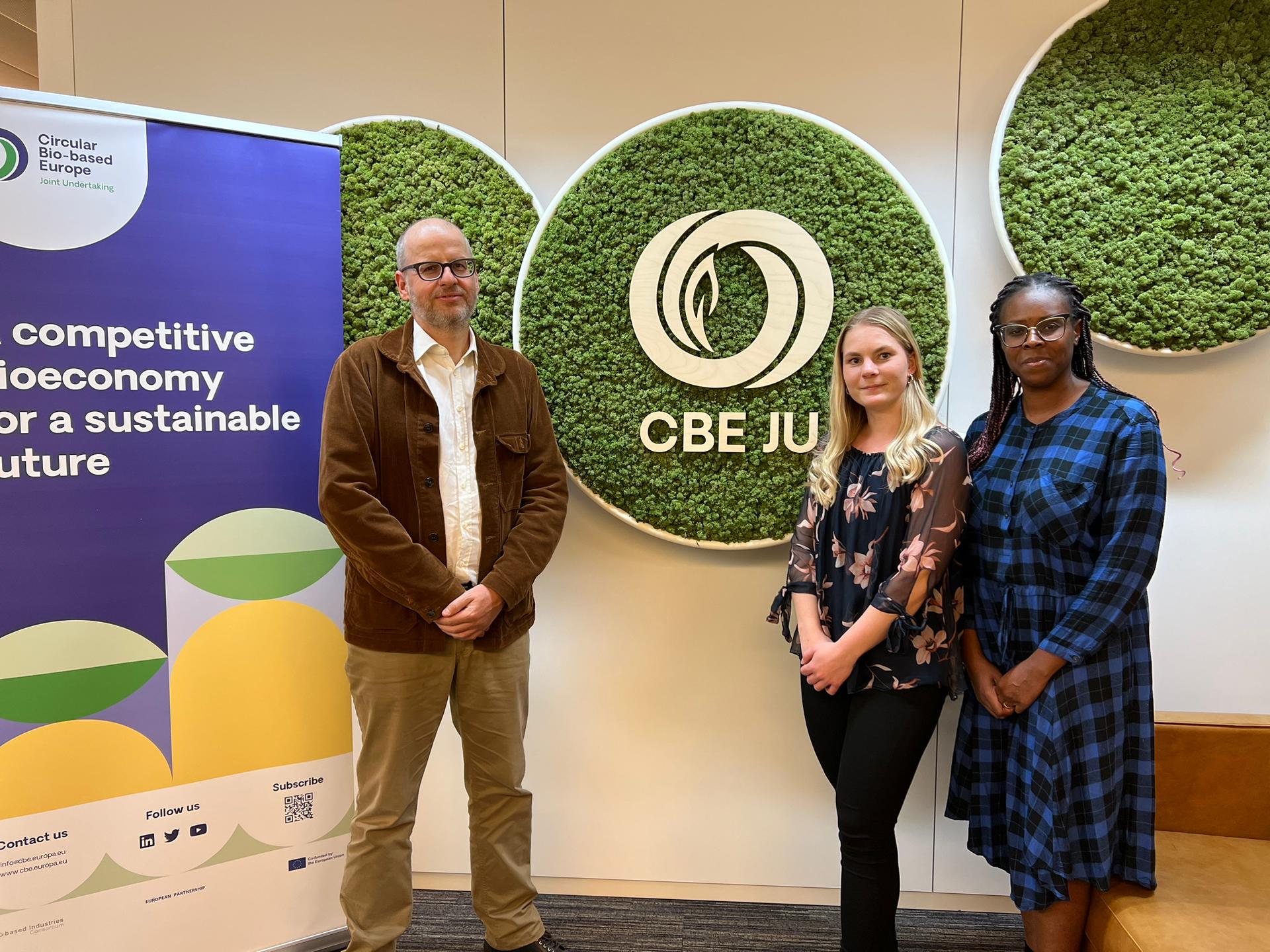
Ronja Holopainen, Sophia De Smet and Marco Rupp (BIC representatives)
As much as her studies allow it, Ronja continues to work on her start-up which focuses on sexual and reproductive health and rights, with the main objective being on sustainable reusable menstrual underwear development and improvement of sex education in sub-Saharan Africa.
The next day, Ronja exchanged with Agnes Borg and Lucie McMurtry, Industrial Technology Director and Manager at EuropaBio, the European Association for Bioindustries, which also covers the healthcare sector.
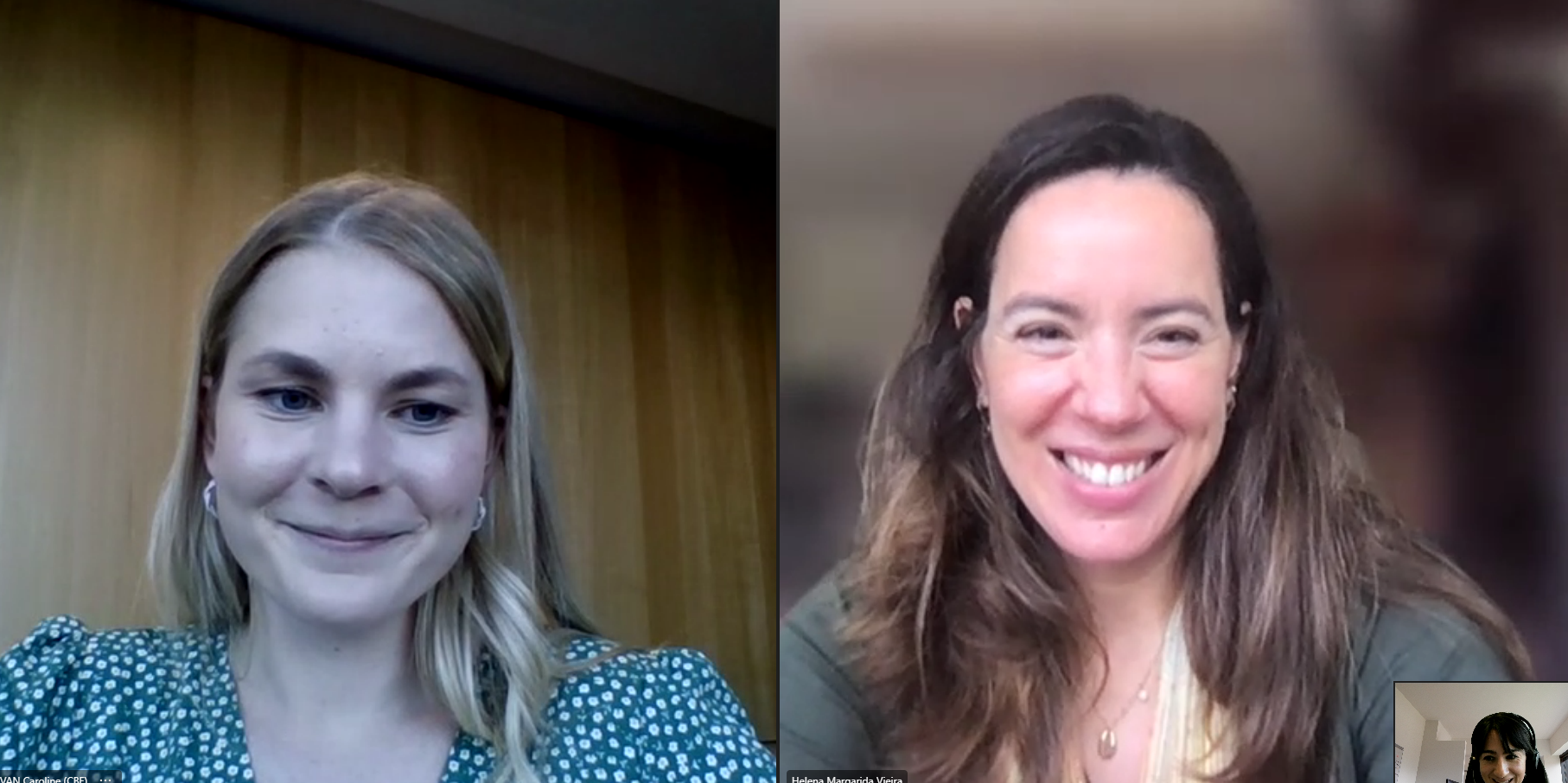
Ronja Holopainen and the Chair of the CBE JU’s Scientific Committee Helena Vieira
She then met Helena Vieira, Chair of the CBE JU’s Scientific Committee, and had a discussion on women’s health with Elsi Katainen, a Member of the European Parliament.
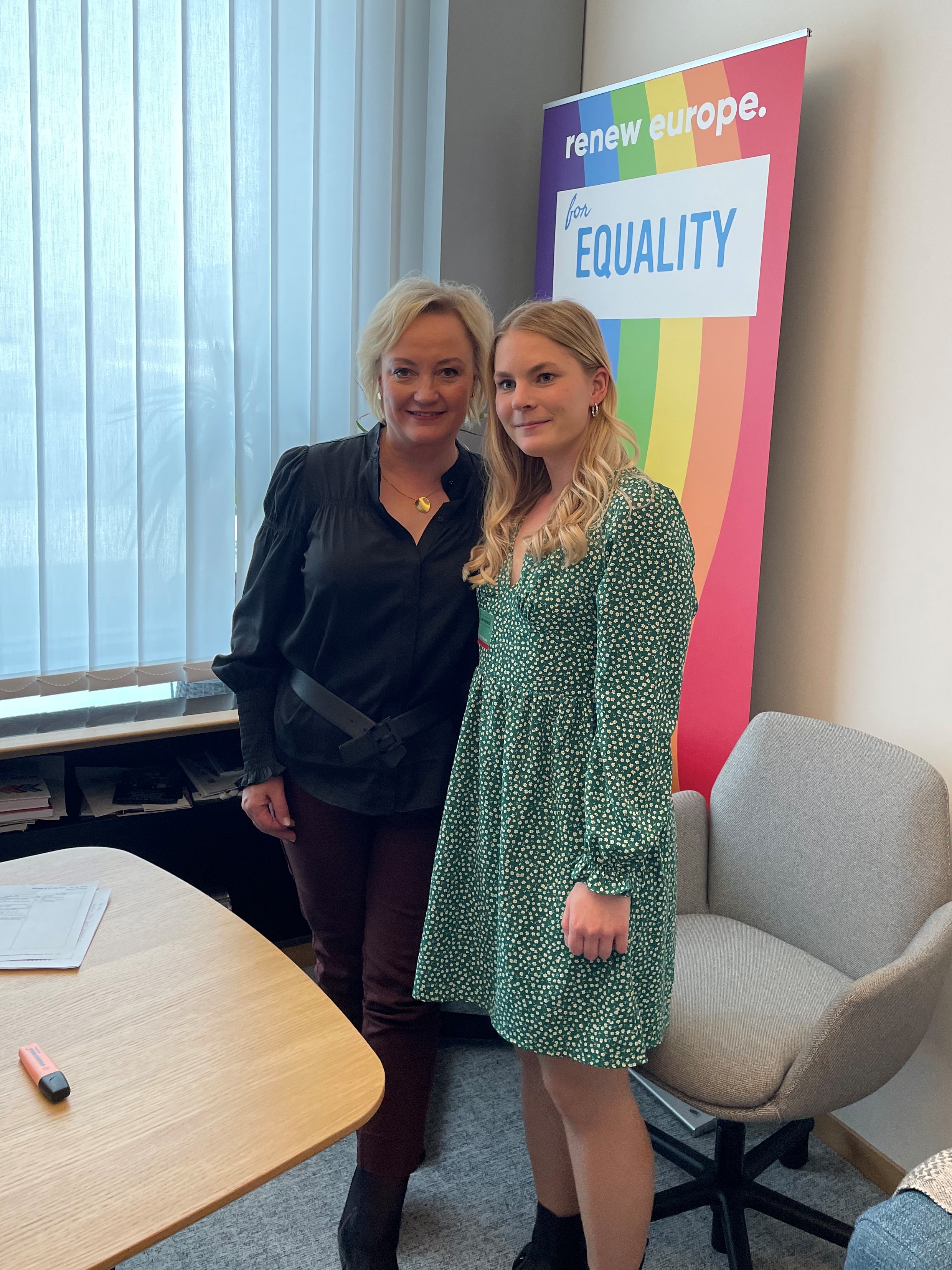
Ronja Holopainen meets Member of the European Parliament Elsi Katainen
Over two visit days Ronja had the chance to meet her compatriots at the Finnish Permanent Representation to the EU and to exchange with Tapio Kytölä, Counsellor for Agriculture and Forestry, as well as Niina Nurkkala, Counsellor for Research, Innovation, Space and Euratom.
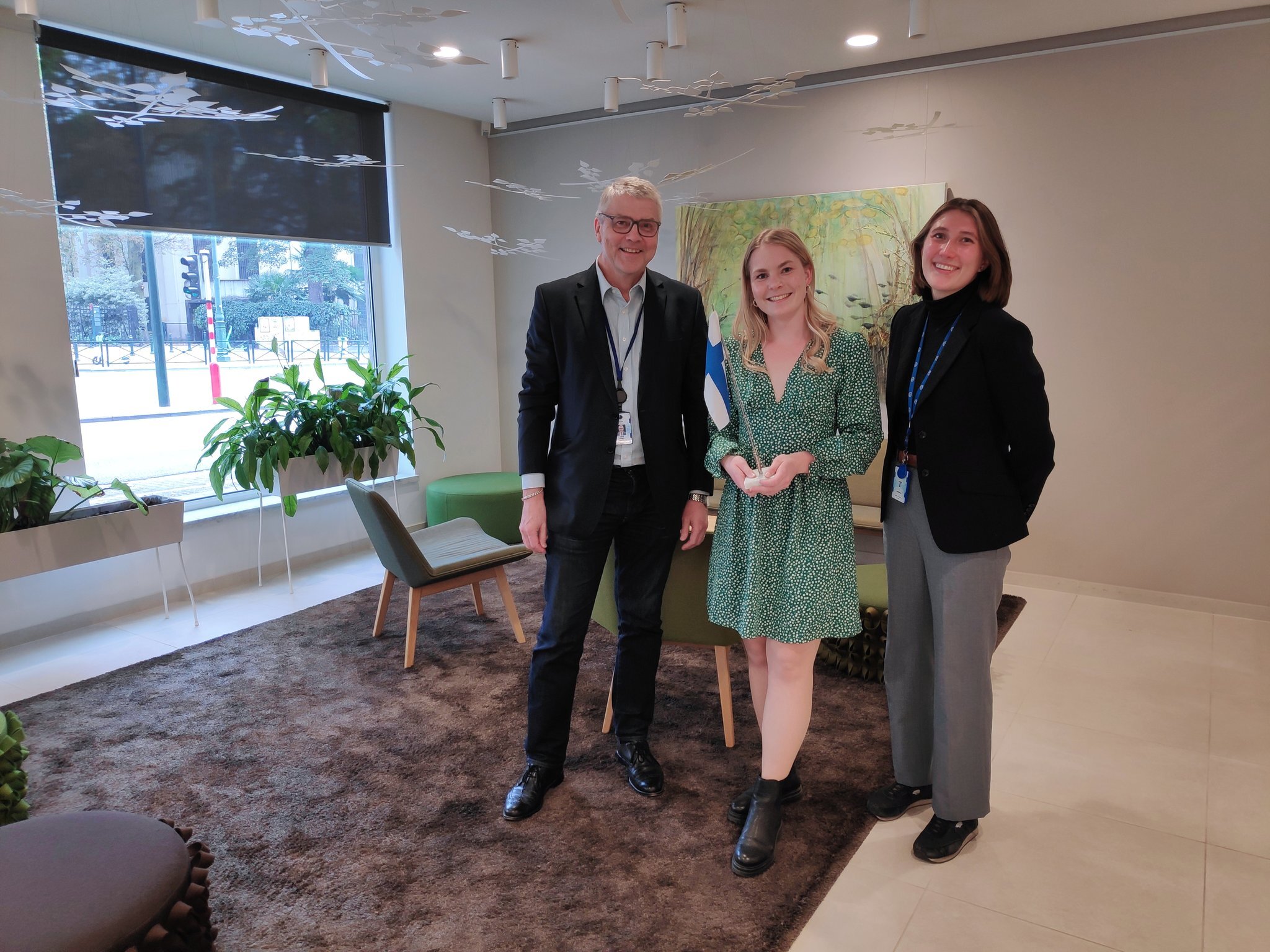
Ronja Holopainen with Tapio Kytölä, Counsellor for Agriculture and Forestry
Ronja's work shows how necessary is to have women in the science and research field, breaking the glass ceiling, to put the spotlight on issues like menstrual education.
Niina Nurkkala, Counsellor for Research, Innovation, Space and Euratom in the Finnish Permanent Representation to the EU
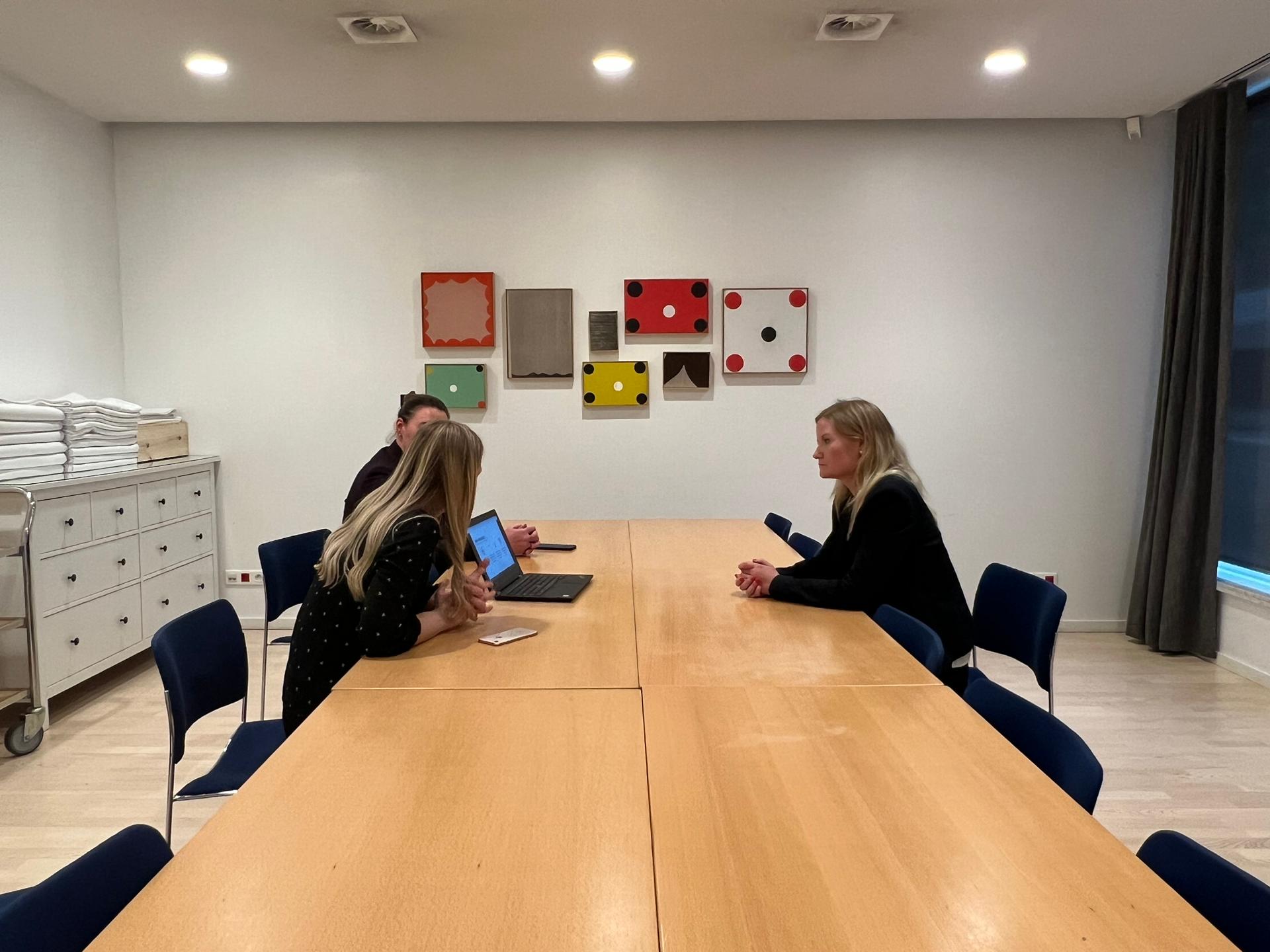
Ronja Holopainen meeting with Niina Nurkkala, Counsellor for Research, Innovation, Space and Euratom in the Finnish Permanent Representation to the EU
She also had an inspiring exchange with Iris Aquilina Anderson, leader of the BioLadies network.
On the last day of her visit, CBE JU colleagues joined Ronja for a trip to Bio-Base Europe Pilot Plant, beneficiary of 16 CBE JU-funded projects.
During the trip, Ronja received encouraging feedback from the various bioeconomy interlocutors on how to develop her promising research and bring it to the market in the coming years.
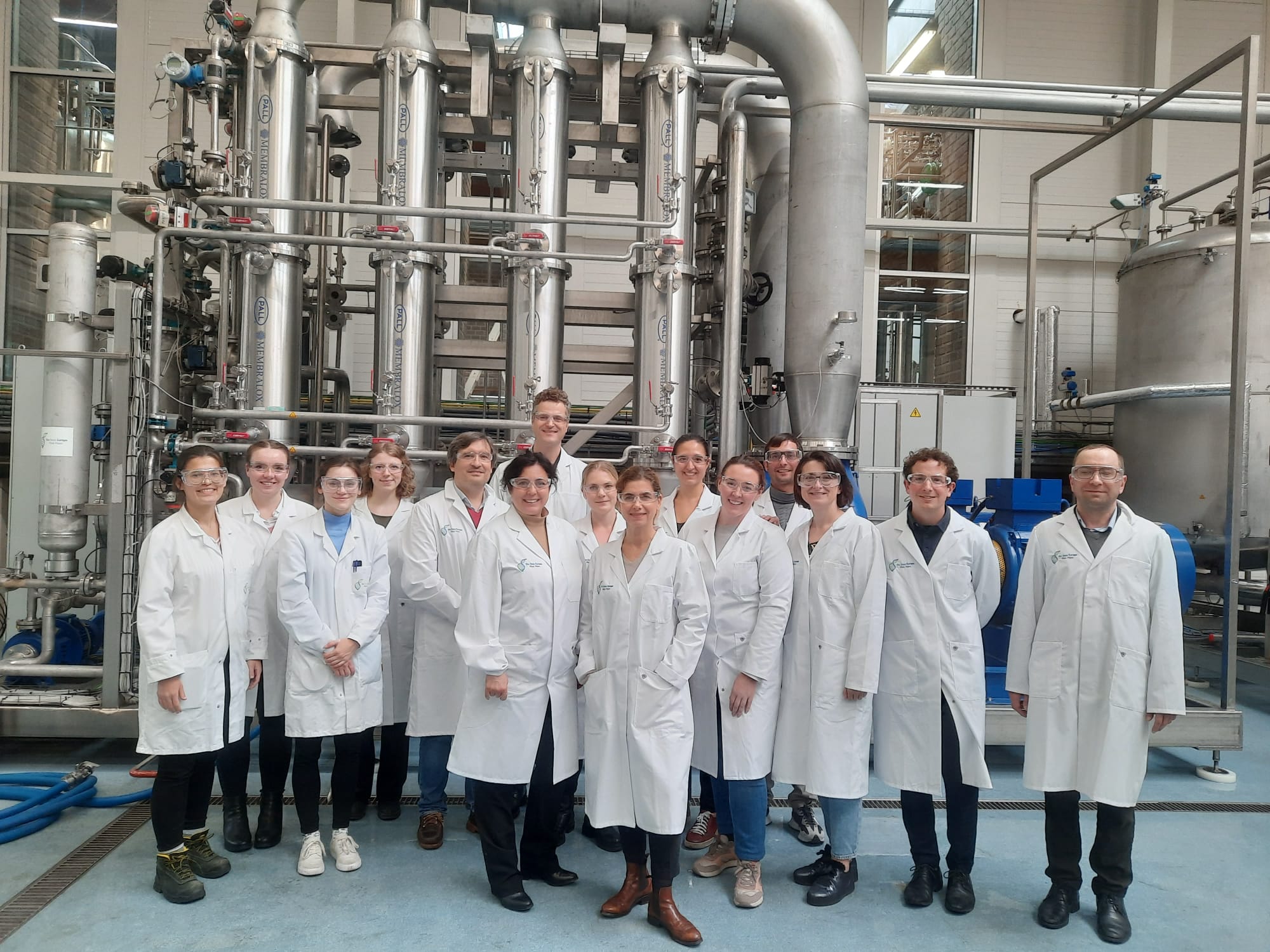
Ronja Holopainen and the CBE JU visiting the Bio-Base Europe Pilot Plant
What is EUCYS?
The EU Contest for Young Scientists accepts project entries from contestants working in any scientific field aged between 14 and 20 at the date of the contest. This initiative of the European Commission was set up to promote the ideals of cooperation and information exchange between young scientists.
The national organiser must nominate projects in each participating country. Typically, they are the winners of contests organised at a national level.
The contest gives students the opportunity to:
-
Compete with the best of their contemporaries at European level
-
Meet others with similar abilities and interests
-
Get guidance from some of the most prominent scientists in Europe